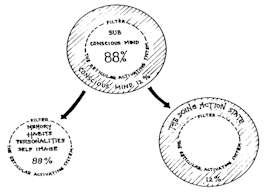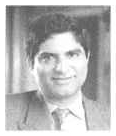What is the detriments of not stopping smoking?
Today tobacco companies are beginning to admit the addictive qualities of nicotine. Researchers differ on the potency of nicotine but it has been found that between 33% and 50% of "experimental" smokers become addicted. This can be compared with the 3% to 20% of people who "experiment" with cocaine and become addicted. Further research also shows that an adolescent who smokes as few as four cigarettes has a 94% chance of continuing to use tobacco for a substantial part of his or her life!
Why do people start smoking?
There are many reasons why a person may begin smoking: peer group pressure, defying authority, improving self image (adolescents may think it's 'cool' or sophisticated to smoke). The main reason for continued use is the perceived benefit from nicotine as a relaxant to manage stress. However, whilst the belief may be "every time I have a cigarette, my hands and body stop shaking and I relax", the fact is that the heart rate, and thus stress, actually increases. Unfortunately you may think you feel better!
There are many "medication" based approaches to the treatment of tobacco and nicotine addiction. Virtually all of them are successful for some smokers. Sadly, others remain unable to quit no matter what they try. There are two major reasons for this:
- They don't have a compelling enough reason for quitting smoking.
- They may not know how to change a habit of smoking.
It is essential to have a reason to quit smoking that is stronger than the reason to continue. Some reasons are improved health, saving money, social acceptance; unfortunately, some people need to be shocked into stopping, like developing a life threatening illness, or losing a loved one.
If you truly have the desire to stop smoking, but don't know how to change, then the key lies in understanding and using the power of the subconscious mind to change the habit.
How Can The Subconscious Mind Change A Habit of Smoking?
Your mind has two components each with separate functions. There is the conscious mind, which is 12% of our mind, and the subconscious mind, which is the other 88%.
 The conscious mind is the one we readily identify with, it is our "doing state" that we use to perceive the world and make decisions with such as "I would like to stop smoking".
The conscious mind is the one we readily identify with, it is our "doing state" that we use to perceive the world and make decisions with such as "I would like to stop smoking".
The subconscious mind is responsible for storing our memory, habits ("when I get upset I smoke a cigarette"), beliefs ("smoking relaxes me") personality and self-image ("when I smoke I look sophisticated"). It also controls our bodily functions. Notice that you don't have to consciously think about doing these things.
Although we can become aware of our subconscious compulsions towards smoking, we often have difficulty in changing them. When we form a conscious desire ("I want to stop smoking"), we come up against our existing habit ("When I experience too much stress I have a cigarette and a coffee!"). This is therefore 12% of your mind battling with the other 88%. If you attempt to make this a battle of conscious will, you normally experience stress as you fight to discipline yourself to keep to your "non-smoking" plan, enduring much pain and suffering. It is for this very reason that most people will either deviate from their program within a week of starting, or give up completely. The conflict between the conscious and the subconscious mind is fought inside on an emotional level; a conflict which you do not need to experience if you understand how one can control the other.
Because the subconscious mind contains the habit of smoking, it is essential to access this part of the mind. This can be done through relaxation. Once you have accessed the subconscious, it is then possible to change the subconscious program or "thinking" that creates the habit which compels you to smoke. By changing that habit and practising other methods of managing stress, a person can free themselves of a smoking habit forever!
These are the main steps:
- Finding a compelling reason to stop smoking.
- Understanding the subconscious beliefs which support continued smoking.
- Learning the most effective way to communicate with the subconscious mind, especially in the wording of your goals.
- Reprogramming these subconscious beliefs to support a new habit of non-smoking.
- Learning and developing alternative methods for relaxation and releasing stress.
Understanding The Subconscious Beliefs Which Support Continued Smoking
Basically we are aroused by only two sensations, pain and pleasure. We all want to avoid pain and pursue pleasure. The emotional cycle which can lead to unwanted behaviour begins in the present with our initial experience of pain, and ends with complex feelings which are "remembered" exclusively in the past. This cycle of emotions has been found by psychiatrists to follow this pattern:
- Pain in the present is experienced as hurt.
- Pain in the past is remembered as anger.
- Pain in the future is perceived as anxiety or fear.
- Unexpressed anger, redirected against yourself and held within is experienced as guilt.
- The depletion of energy that occurs when anger is redirected inward creates depression.
Hurt is stored because the body retains a primitive subconscious ability to remember every incident that it experiences. This is called conditioning and it is part of the way we learn.
These hurts become "conditioned subconscious reflexes" and are subsequently modified by our behaviour. Let's consider some examples of how this happens:
Two young children are in trouble for being involved in a misdemeanour. As they await their punishment one child offers the other a cigarette to help them relax. The other accepts because smoking is a further act of defiance and a furthering of the social bond between the two. The smoke may taste awful but emotional well being is formed through acceptance of the offer. This then may encourage further smoking. Cigarettes make the child feel better and a new association between fear/stress and smoking as a comforter is formed.
New Conditioned Reflex
I become afraid à I desire a cigarette because I know smoking will make me feel better.
A girl breaks up with her first boyfriend. She feels upset and depressed. Well-meaning friends take her out dancing and when the others light up, she joins them. The camaraderie and the cigarettes make her feel better, and a new association between smoking and overcoming emotional depression is formed.
New Conditioned Reflex
I become depressed à I desire a cigarette because I know smoking makes me feel better.
Therefore a lot of smoking habits are misdirected reactions to emotional stress.
Coincidentally this is also the mechanism behind overweight. This is why many smokers who attempt to give up smoking gain weight, as eating becomes the new "release" from emotional stress. The opposite can also be true. Some smoking habits are formed, particularly in young females, because a cigarette is "preferred" to eating food as the method for releasing emotional stress.
Although understanding your relationship to this aspect of smoking can take longer and requires greater insight and courage to accomplish, it usually results in a lasting cure.
In the Life Skills Seminarwe teach and practise the following skills:
- How to relax and release stress.
- A scientific explanation of how the brain works.
- How to access and work with the powerful subconscious mind.
- How to communicate effectively with the subconscious mind.
- How to make your language work for you instead of against you - e.g.. you learn not to use the words "stop smoking" and "non-smoker".
- Developing strong and compelling reasons to stop smoking.
- Understanding the subconscious beliefs which support continued smoking.
- Reprogramming these subconscious beliefs to support non-smoking.
Finally the most important thing I would like to add is that to achieve the goal of not smoking, you do not have to believe that these techniques work. The subconscious mind does not know the difference between reality and imagination - so simply doing the mental exercises is enough! Many seminar participants have achieved their goals in spite of their scepticism - they felt they had nothing to lose, so they had a go!
You May Ask "How Effective Are These Techniques in stopping smoking?"
Here's a success letter from one of my seminar participants in quitting smoking:
 I had been a fairly heavy smoker (30 a day) for 27 years. I did not make a big deal about the smoking as a goal, but it was there in the background the whole time. On the Wednesday following the seminar I had my last cigarette after dinner. Very cool, no fuss - I just KNEW it was my last cigarette. A week later I still had no urge to smoke - just a feeling of "what's missing?" I haven't been irritable or cranky (haven't beaten the kids once!) and I feel just great and not a little pleased with myself. I went on and applied the techniques to releasing weight. I released 5 stone (that's 31 kilos) - my self esteem soared, relationships improved - you can just imagine all the great effects can't you? I feel just great!
I had been a fairly heavy smoker (30 a day) for 27 years. I did not make a big deal about the smoking as a goal, but it was there in the background the whole time. On the Wednesday following the seminar I had my last cigarette after dinner. Very cool, no fuss - I just KNEW it was my last cigarette. A week later I still had no urge to smoke - just a feeling of "what's missing?" I haven't been irritable or cranky (haven't beaten the kids once!) and I feel just great and not a little pleased with myself. I went on and applied the techniques to releasing weight. I released 5 stone (that's 31 kilos) - my self esteem soared, relationships improved - you can just imagine all the great effects can't you? I feel just great!
Julie Van den Driesen, VIC
I was interested read that Dr Deepak Chopra also used this method to overcoming his smoking habit. His explanation of how he did this is extracted from his book Overcoming Addictions and is a good example of having a compelling reason to stop:
 I began smoking when I was 17 years old. Over the years I made many attempts to stop, but none were successful for long. I came to despise my smoking habit, and I was angry at myself for indulging in it. Very often I would furiously throw away the last five cigarettes in a pack while promising myself to quit. But within an hour or so I was furtively opening a new pack. I saw that in some way the cycle of self-reproach and guilt was a mechanism that kept my habit alive, but this insight had no practical effect on my smoking. I simply acted out the sequence again and again. My intention to quit was overwhelmed by the memories of smoking and the desires they ignited.
I began smoking when I was 17 years old. Over the years I made many attempts to stop, but none were successful for long. I came to despise my smoking habit, and I was angry at myself for indulging in it. Very often I would furiously throw away the last five cigarettes in a pack while promising myself to quit. But within an hour or so I was furtively opening a new pack. I saw that in some way the cycle of self-reproach and guilt was a mechanism that kept my habit alive, but this insight had no practical effect on my smoking. I simply acted out the sequence again and again. My intention to quit was overwhelmed by the memories of smoking and the desires they ignited.
Then one evening I went to the ballet. As I sat there in the darkness admiring the graceful dancers, I could hear my own breathing coming in wheezes and gasps. The contrast made a powerful impression on me. Before me were superb athletes flying across the stage, and here I was struggling just to breathe. The next day I was about to open a new pack of cigarettes, I felt more than my usual degree of guilt about my smoking. But I had learned by this time that guilt was not enough to break my addiction: in some mysterious way, guilt facilitated it. So instead of combining the toxic experience of smoking with my own toxic self-reproach, I let my thoughts return to the beautiful dancers I had seen the night before. By doing so, I finally discovered the way to break the chain of my addictive behaviour, and I threw away my package of cigarettes. Over the new few weeks, I called upon the memory of the dancers whenever I felt the desire to smoke. I gave up trying to fight my addiction, and instead replaced it with a positive alternative.
Dr Deepak Chopra
Overcoming Addictions
So What is the Next Action Step that You Can Take in Stopping Smoking?
CALM makes suggestions on how you can develop your skills in dealing with Stopping Smoking using Sandy MacGregor's low cost Tapes, Books, CDs, Videos and Seminars which have been utilised by thousands of people successfully since 1990.

 Online store
Online store Seminar Information
Seminar Information Short talks
Short talks Books
Books Audio CDs
Audio CDs DVDs
DVDs Packs
Packs Coaching
Coaching Meditation
Meditation


Comments